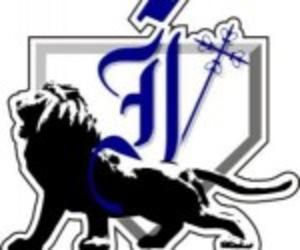Storm Ends Retired Cuban Baseball Stars' Fla. Game
- Submitted by: lena campos
- Sports
- 09 / 06 / 2013

What a political storm couldn't stop, a tropical one did. Thunder, lightning and flash flooding on last Saturday rained out the first South Florida matchup between retired Cuban baseball players from both sides of the Florida Straits.
The game between former members of the Industriales, the Yankees of Cuba, would have been inconceivable a decade ago, due in large part to the Miami Cuban exile community's opposition to cultural exchanges with the island. But the United States and Cuba have eased travel restrictions in recent years, and the younger generation and new immigrants in South Florida are more open to such events.
Even so, the matchup was nearly derailed in July, when Florida International University, which had agreed to host two games, suddenly backed out, citing "contractual issues." Its decision came shortly after resistance from a small but vocal Miami-based group that has long opposed the administration of Communist Cuban President Raul Castro and former President Fidel Castro. The first of the games was also originally slated for the same day a broad coalition of Cuban-American groups was holding a conference at FIU's law school to ratchet up pressure on the Cuban government.
None of the most successful retired exile players, such as Orlando "El Duque" Hernandez, appeared Saturday despite being promoted in event publicity.
But fans and players seemed undaunted. Instead of the usual pregame handshakes between opposing teams, many of the players — some who had not seen each other for a decade — grabbed one another in bear hugs. Fans and players from the U.S. covered their hearts for both the Star Spangled Banner and the Cuban national anthem, La Bayamesa.
Game organizer Alejandro Canton and his company Somos Cuba ("We are Cuba") Entertainment Group have frequently brought artists from the island and support more cultural exchanges. He pulled off a successful game in Tampa last week. But Miami was different.
FIU has refused to say much publicly about the cancellation, but a letter from the school's attorney to the American Civil Liberties Union made clear top university officials were jittery about the games' potential political nature. The school also argued it had excluded its sports venues from political gatherings, although former President Bill Clinton gave a political speech at its basketball arena In 2012.
Just outside the stadium gates Saturday, about two dozen, mostly gray-haired men and women with Cuban flags gathered to protest the game before it started. Those who came to see the game filmed the protesters on their phones but remained jovial.
Johan Alvarez, 45, who runs a small health care company in Miami, was among those snapping photos. Alvarez, who came to the U.S. from Cuba more than a decade ago, called the protest "part of the folklore of Miami."
Alvarez said he grew up watching the visiting players and those who now call the U.S. home and was excited to see the matchup. "It's nostalgic," he said.
Most of the hundreds of people lined up early at the Fort Lauderdale stadium Saturday had little interest in talking politics. Old and young alike sported the royal blue T-shirts and hats of the Industriales as they snacked on pregame hot dogs and guava pastries at the stadium food court.
"This is pretty cool," said Carlos Campos, 30, who left Cuba a decade ago. He waved away questions about the controversy. "This is about a game, not political arguments."
During the brief playing time, one protester ran onto the field and was booed by the spectators before being tackled by police and quickly removed. Minutes after the game resumed, a crack of thunder exploded above the stadium and rain beat down. Organizers initially hoped to continue the game, but they eventually gave up as the freshly spread dirt turned to mud and lighting flashed without respite.
Baseball, the national pastime of Cuba, has long united exiles and those still on the island, but it has also been a point of contention. Over the years, dozens of top players have defected to the U.S., some going on to play in World Series championships. As recently as last month, all-star first baseman Jose Dariel Abreu was reported to have defected with dreams of playing in the U.S.
Source: ABCNews.go.com
Comments